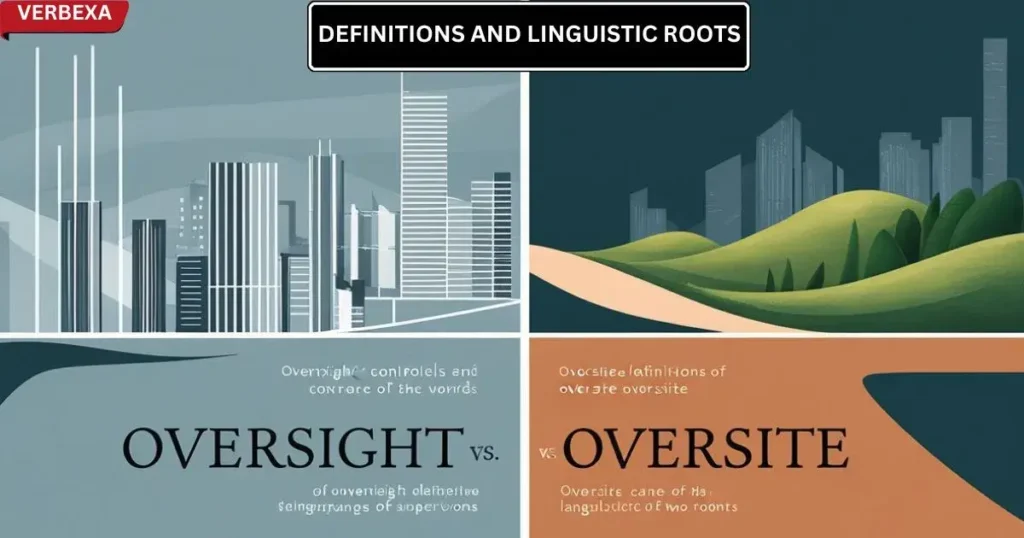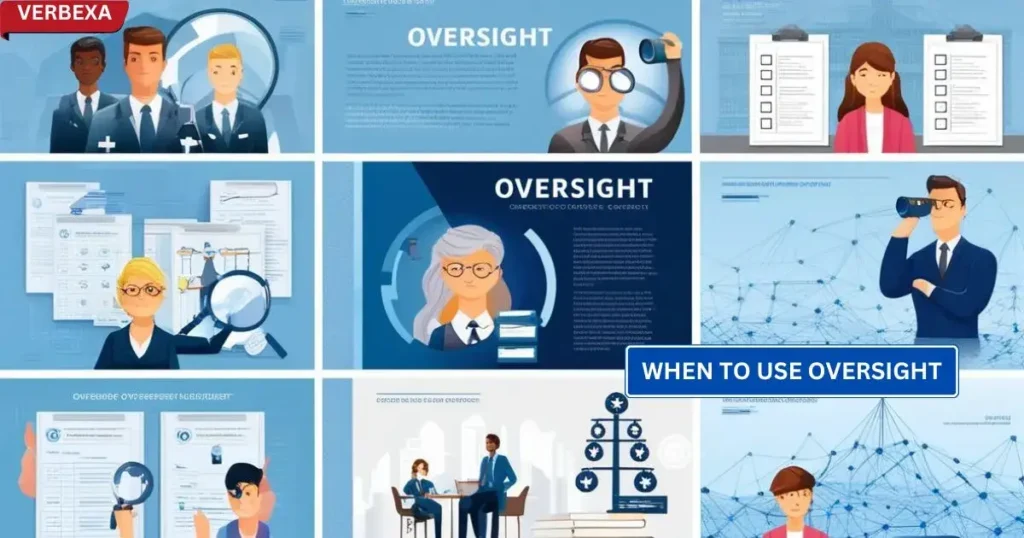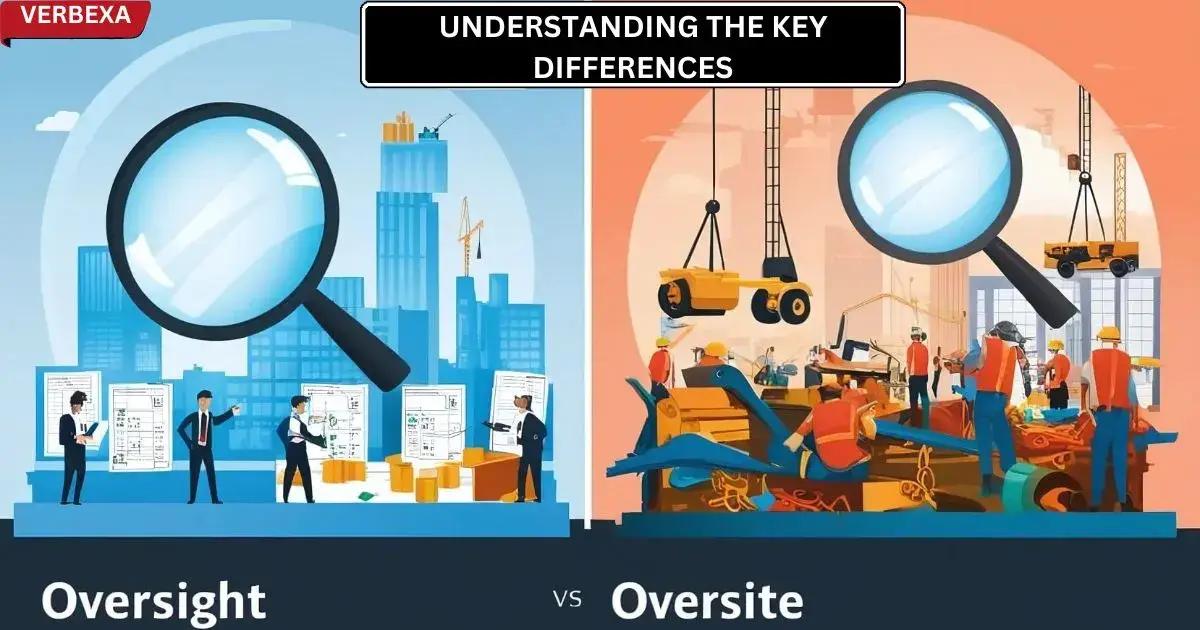In the vast landscape of the English language, certain terms emerge that can confuse even the most meticulous writers and communicators. Oversite vs oversight represents one such linguistic puzzle that continues to challenge professionals, students, and language enthusiasts alike. Imagine sending an important oversite or oversight in a critical business report, only to realize you’ve used the wrong term – a mistake that could potentially undermine your professional credibility.
The subtle distinction between oversite and oversight goes beyond mere spelling; it encompasses nuanced meanings, contextual usage, and linguistic precision. This article aims to demystify these terms, providing clear guidance on when and how to use them correctly.
Definitions and Linguistic Roots

Understanding Oversight
Oversight is a legitimate English word with multiple significant meanings:
Supervisory Role: The act of monitoring, managing, or supervising a process, project, or team.
- Example: The oversight of the financial department ensures compliance with regulatory standards.
Unintentional Error: An oversight can also refer to an accidental omission or failure to notice something important.
- Example: The contract’s expiration date was missed due to a critical oversight by the legal team.
The Myth of Oversite
It is not a standard English word. It is typically a misspelling or typo of oversight, often used erroneously in various contexts. Professional writers and communicators should be cautious about using this term.
Comparison Table: Oversight vs Oversite
| Characteristic | Oversight | Oversite |
|---|---|---|
| Definition | Official supervision or unintentional error | Invalid term/misspelling |
| Grammatical Function | Noun | Not applicable |
| Professional Usage | Widely accepted in business, academic, and legal contexts | Incorrect; should be avoided |
| Etymology | Derived from “over” + “sight” | N/A |
When to Use Oversight

Professional Contexts
Management: Describing supervisory responsibilities
- “The board provides oversight for strategic decision-making.”
Quality Control: Monitoring processes and identifying potential issues
- “The quality assurance team’s oversight prevents potential errors.”
Unintentional Errors: Acknowledging inadvertent mistakes
- “The project’s delay was due to an oversight in resource allocation.”
Common Misconceptions about Oversite vs Oversight
Many individuals mistakenly believe oversite is an acceptable alternative to oversight. However, this is a fundamental error in language usage. Professional communication demands precision and accuracy.
Practical Usage Examples

Correct Usage of Oversight
In Business:
- “The CEO’s oversight ensures the company maintains high operational standards.”
Use In Academia:
- “The research committee provides oversight to maintain academic integrity.”
In Legal Contexts:
- “Judicial oversight prevents potential miscarriages of justice.”
Incorrect Usage to Avoid
“There was a complete oversite in the project management.”
- Correction: “There was a complete oversight in the project management.”
“The committee lacks proper oversite.”
- Correction: “The committee lacks proper oversight.”
Professional Implications

Using oversite instead of oversight can:
- Diminish professional credibility
- Suggest a lack of attention to detail
- Create confusion in communication
Tips for Remembering the Difference
- Oversight contains “sight” – think of oversight as “looking over” something
- Always proofread and double-check your documents
- Use digital writing tools that can help identify potential spelling errors
Frequently asked Questions
What does it mean to be oversight?
Oversight refers to either the act of supervising something or an unintentional mistake. It implies responsibility and attention to detail, or the lack thereof.
What is the difference between oversight and oversite?
“Oversight” is the correct term for supervision or a missed detail; “oversite” is a misspelling and has no valid meaning.
Does oversight have two meanings?
Yes, “oversight” can mean either responsible supervision or an unintentional error or omission.
What is the difference between oversight and overseeing?
“Overseeing” is the verb, the act of performing oversight; “oversight” is the noun, the state or instance of overseeing.
What is oversite?
“Oversite” is not a real word; it’s simply a misspelling of “oversight.”
Conclusion: Precision in Language
Understanding the nuanced difference between oversite vs oversight is more than a grammatical exercise – it’s about maintaining clear, professional communication. By recognizing that oversight is the correct term and oversite is merely a misspelling, you elevate your linguistic precision.
By avoiding oversite and employing oversight accurately, you enhance the clarity, accuracy, and professionalism of your writing and speaking. Should you ever encounter the question of oversight or oversite, remember that only “oversight” is correct. Through the consistent and accurate use of oversight, you ensure your message is clear, professional, and free from ambiguity.
Remember the importance of accurate word choice; proofreading and editing remain valuable skills to avoid mistakes like using oversite instead of oversight. Mastering the difference between these terms—oversight or oversite—enhances your communication and professionalism.

This author is a passionate linguist and grammar enthusiast, dedicated to helping individuals master the art of language. With years of experience in teaching and editing, she brings clarity and precision to every sentence. Tina’s mission is to empower writers of all levels to express themselves with confidence and excellence.

